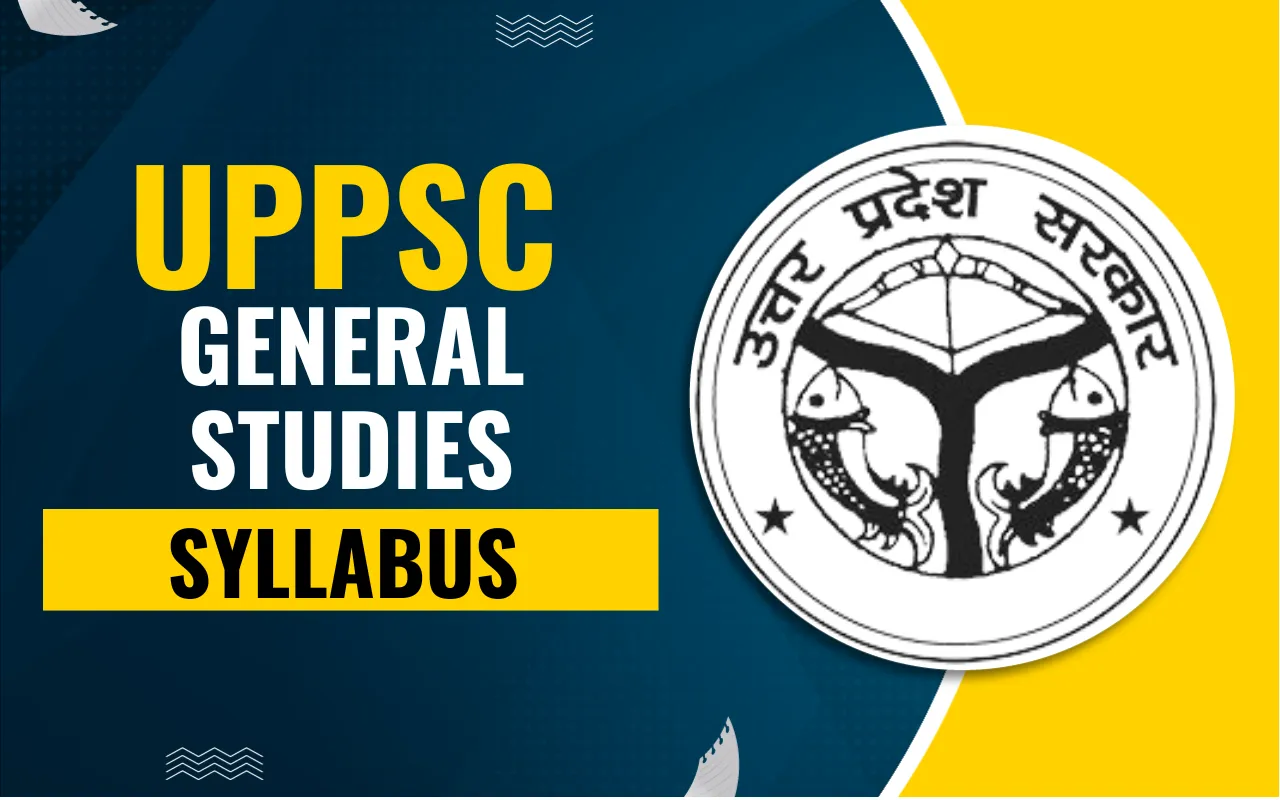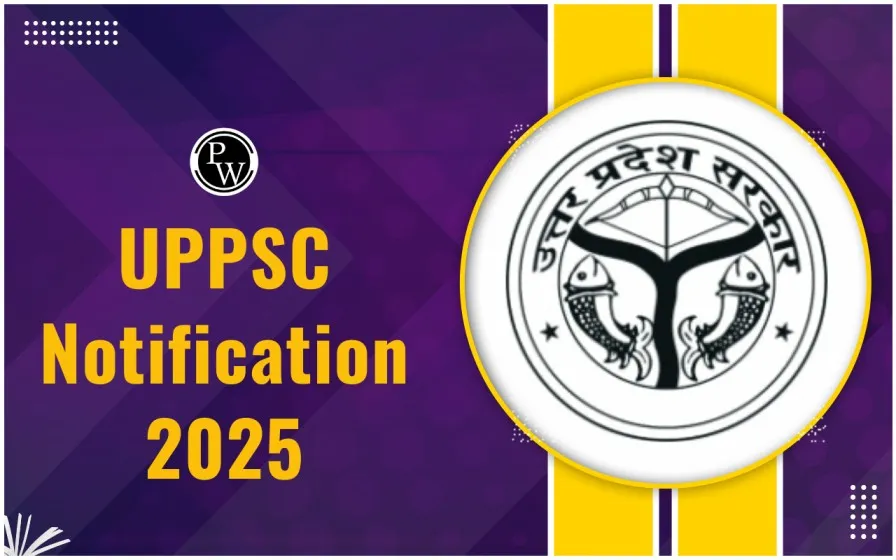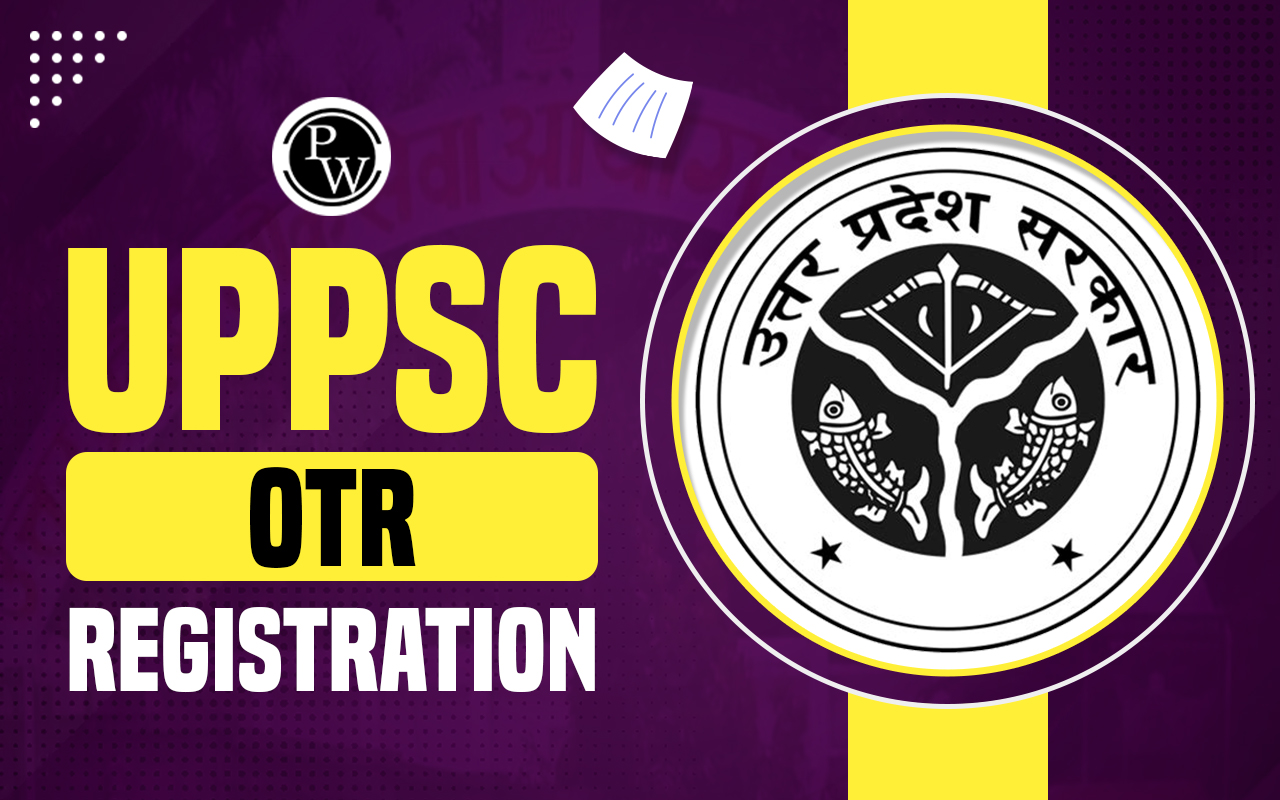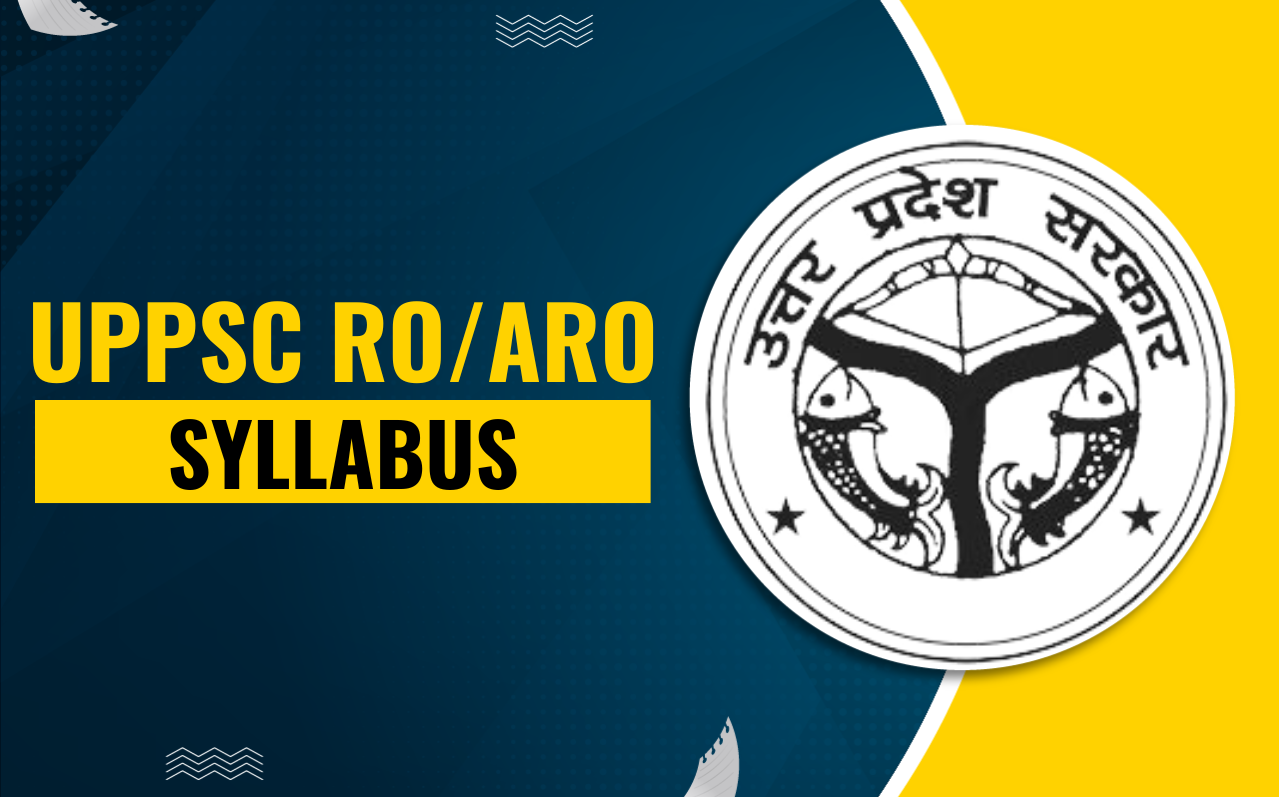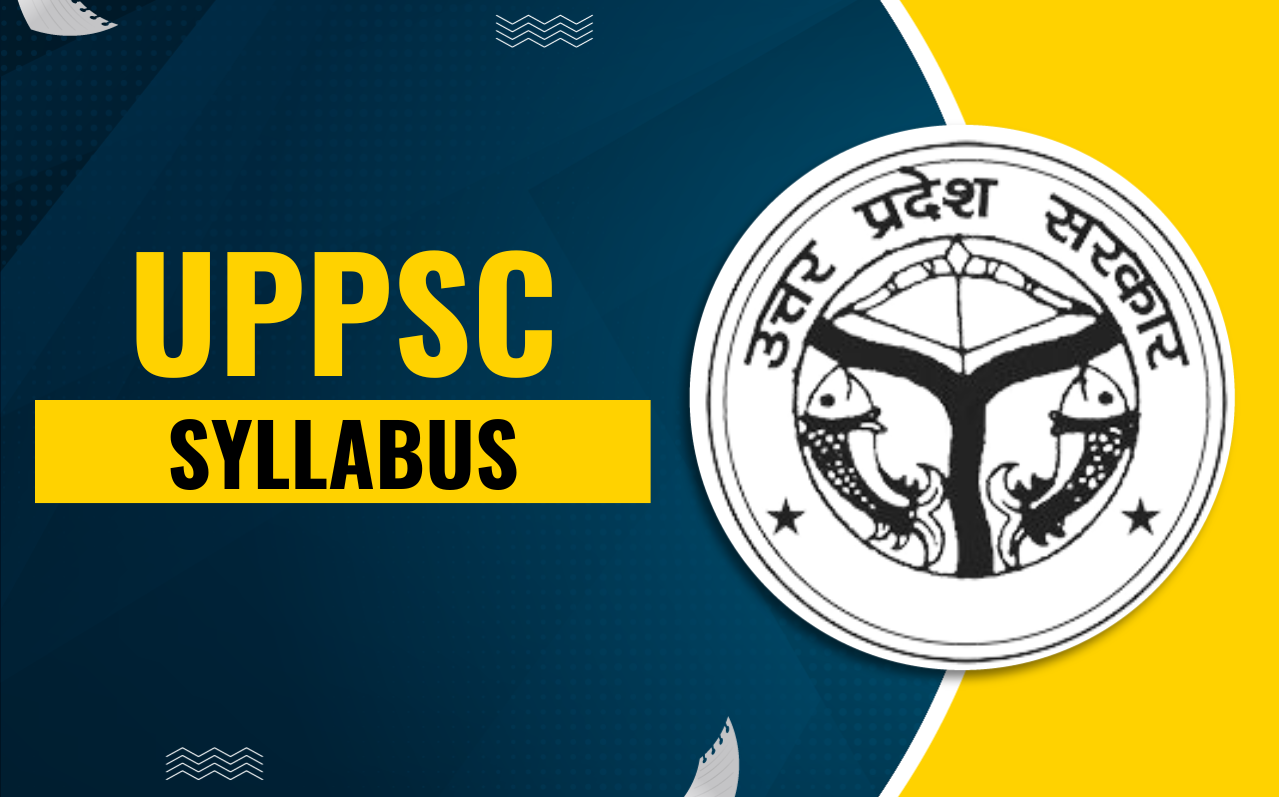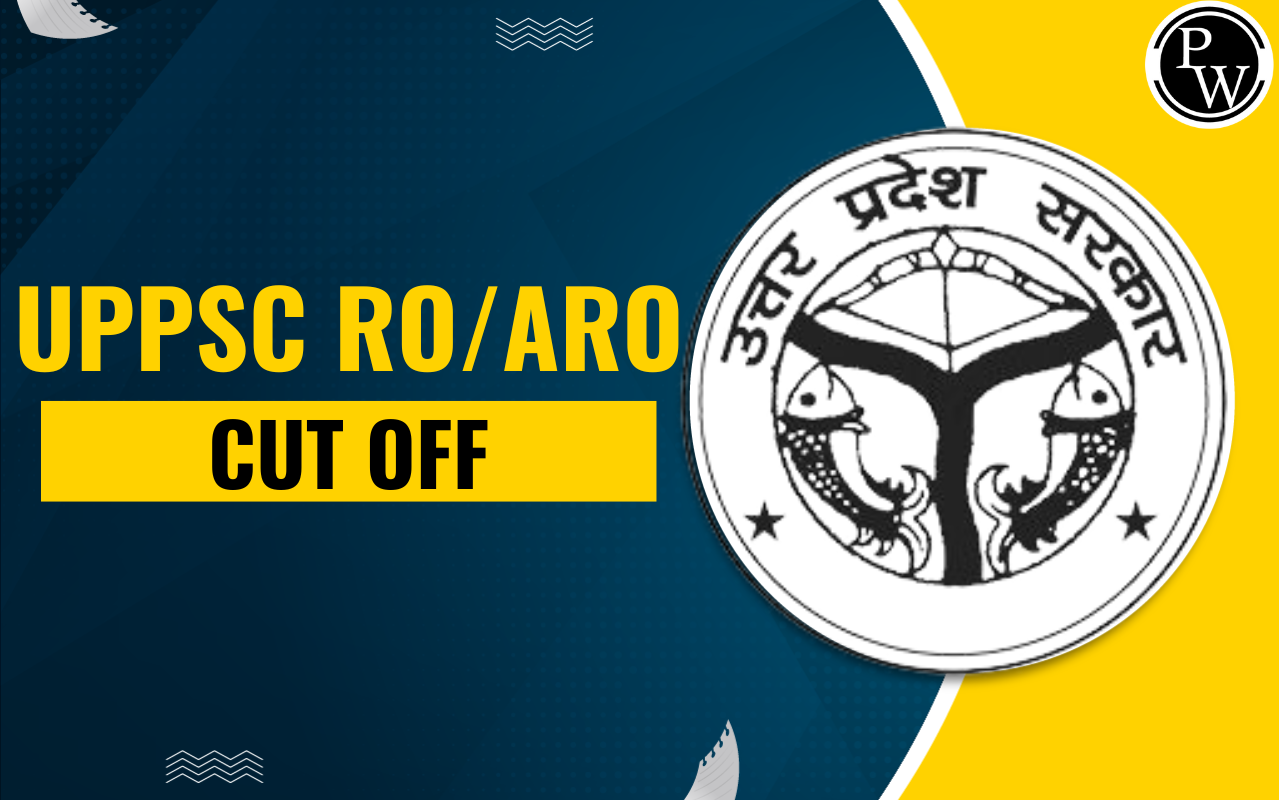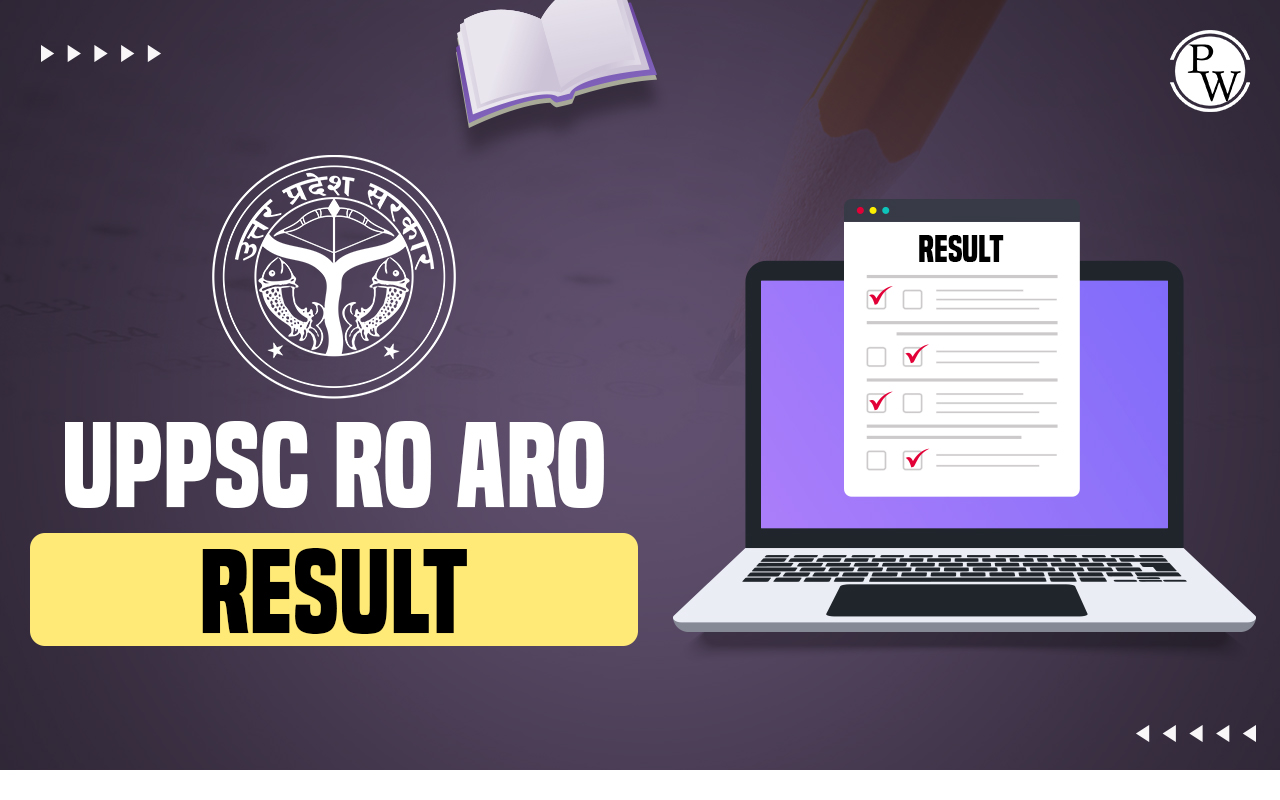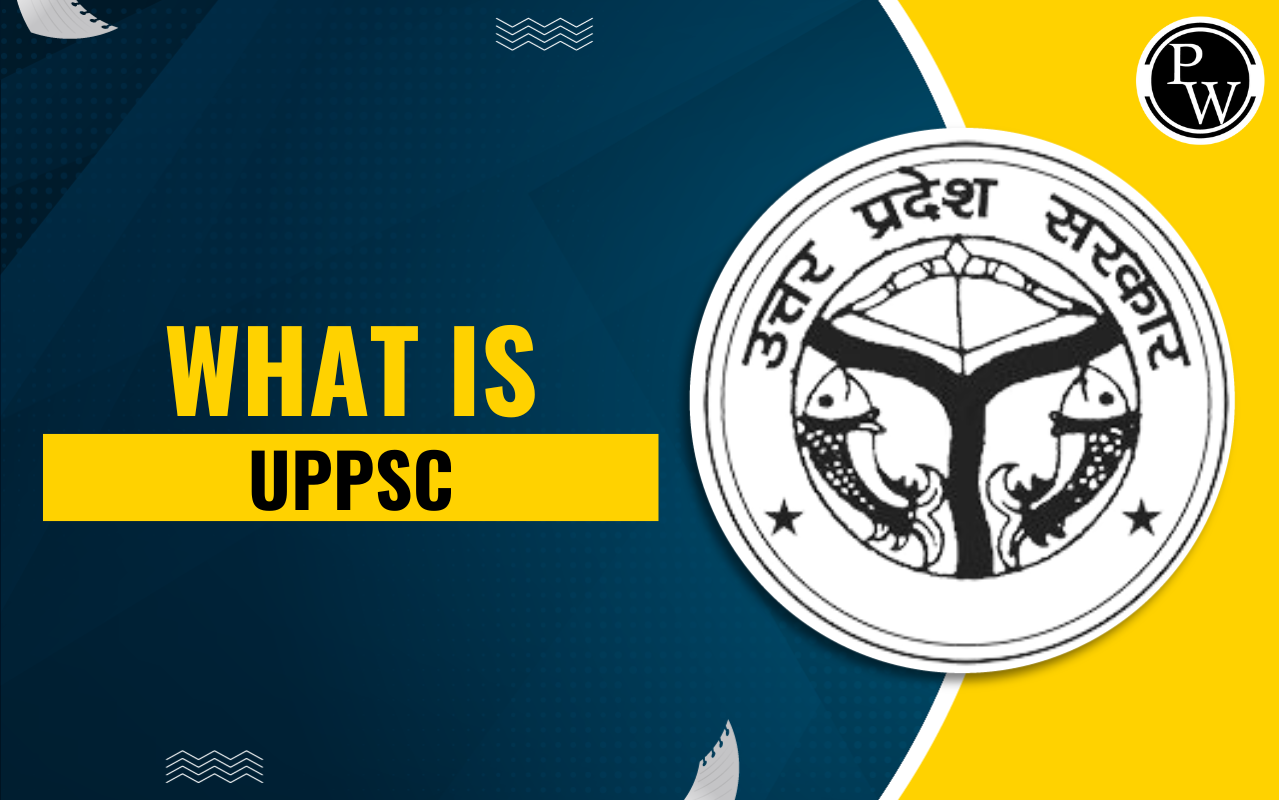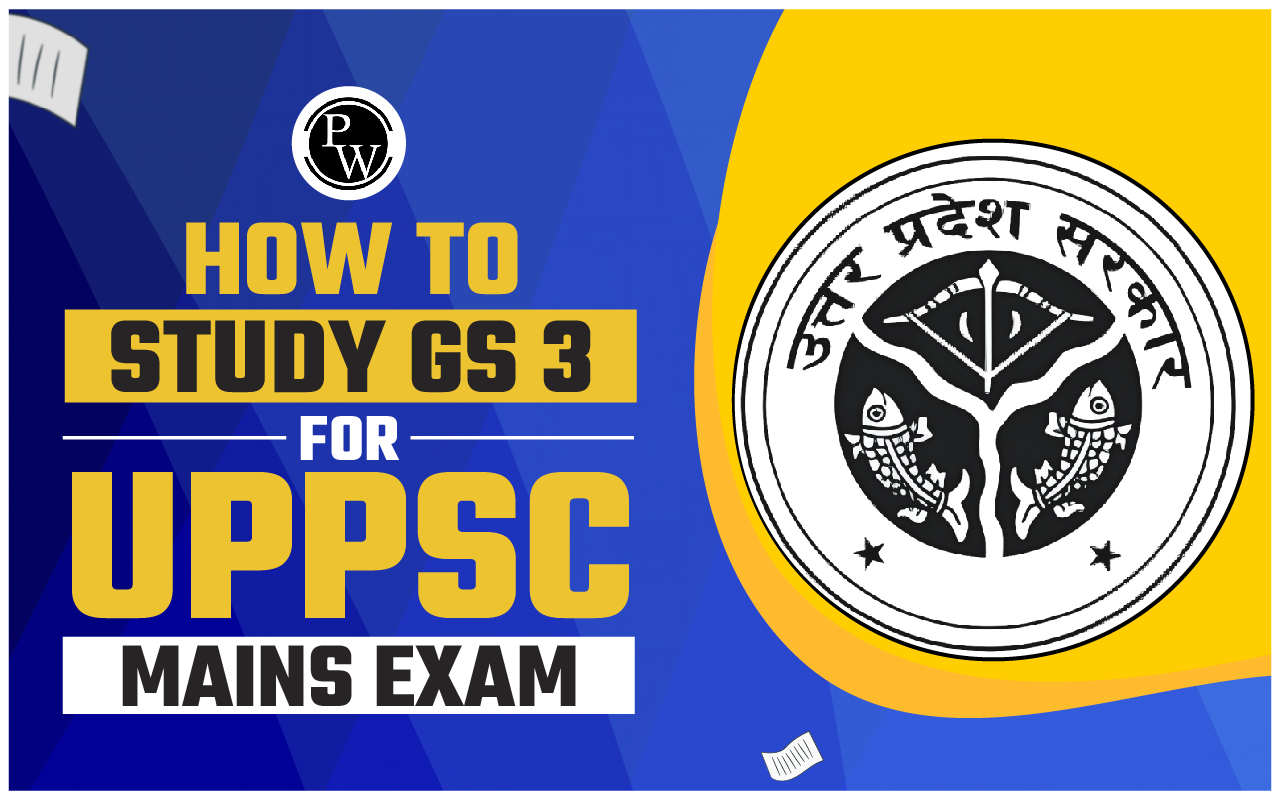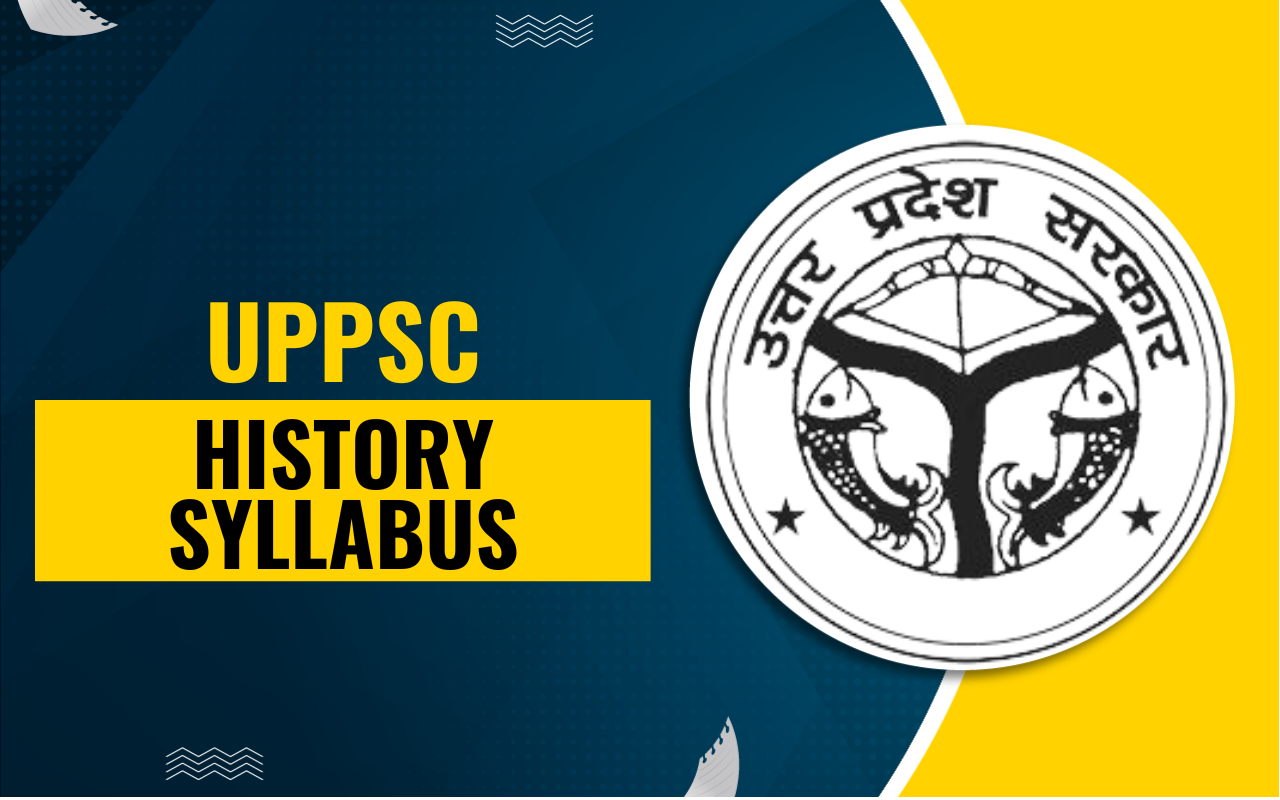
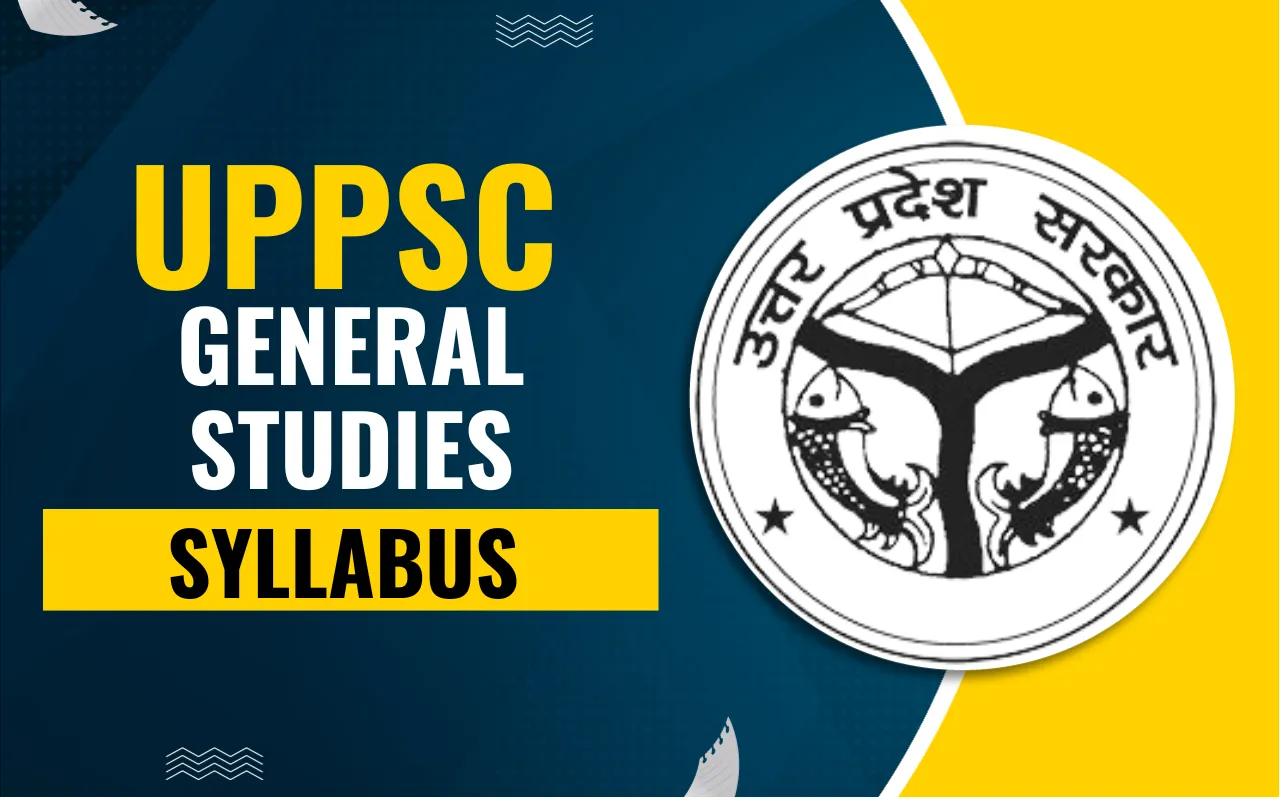
UPPSC General Studies Syllabus provides the applicants with a comprehensive idea of what to read for both Prelims and Mains exams. It consists of topics such as History, Geography, Polity, Economy, Environment, Ethics, and Uttar Pradesh GK. The syllabus makes the students aware of how each paper is designed and what topics are more crucial to score in the exam.
It also helps the aspirants organize their preparation in an efficient manner by classifying topics based on each paper. The syllabus comes in English as well as Hindi and acts as a guide to understand the UPPSC exam pattern, marking scheme, and concepts that require special study and frequent revision.
UPPSC General Studies Syllabus Overview
UPPSC General Studies Syllabus provides a comprehensive overview of the topics and subjects covered in the UPPSC exam. It informs applicants what they should study for Prelims and Mains. The syllabus touches on subjects such as History, Geography, Polity, Economy, Environment, Ethics, and Uttar Pradesh GK, making it important for extensive exam preparation:
|
UPPSC General Studies Syllabus Overview |
|
|
Particulars |
Details |
|
Conducting Body |
Uttar Pradesh Public Service Commission (UPPSC) |
|
Exam Level |
State-Level Competitive Examination |
|
Exam Mode |
Offline (Written Pen and Paper Exam) |
|
Total Questions |
Prelims: 250 (Paper 1 - 150, Paper 2 - 100) |
|
Total Marks |
Prelims: 400 marks (Paper 1 - 200, Paper 2 - 200) |
|
UPPSC General Studies Syllabus Sections |
History, Geography, Indian Polity, Economy, Environment, Ethics, Uttar Pradesh GK, Current Affairs |
|
Syllabus Availability |
Available in English and Hindi in PDF format |
|
Official Website |
uppsc.up.nic.in |
UPPSC General Studies Prelims Syllabus
The Preliminary exam consists of two papers. Both papers carry 200 marks and are for 2 hours duration. Paper 1 deals with current events, history, geography, polity, economy, environment, and general science. Paper 2 tests skills of mental ability like reasoning, mathematics, and language skills. Candidates have to appear in both papers.
UPPSC General Studies Syllabus for Paper 1
GS Paper-I tests their understanding of national and international issues, along with environmental and social challenges, in MCQ format questions.
-
Current Events of National and International Importance: Candidates are expected to be well-versed in current affairs of national and international importance.
-
History of India & Indian National Movement: Focus on social, economic, and political aspects of Indian History. For the Indian National Movement, a synoptic understanding of the nature and character of the freedom struggle, growth of nationalism, and the attainment of Independence.
-
India and World Geography:
-
World Geography: General understanding of the subject.
-
Geography of India: Detailed questions on physical, social, and economic geography of India.
-
Indian Polity and Governance: Knowledge of India’s political system, the Constitution, Panchayati Raj, public policy, and rights issues. Focus on economic policy, culture, and community development.
-
Economic and Social Development: Topics like sustainable development, poverty, inclusion, demographics, and social sector initiatives. Understanding the relationship between population, environment, and urbanization.
-
General Issues on Environmental Ecology, Biodiversity, and Climate Change: Candidates are expected to have general awareness of environmental issues. No subject specialization required.
-
General Science: Questions will cover a general appreciation of science, focusing on everyday observations and experiences.
UPPSC General Studies Syllabus for GS Paper 2
GS Paper-II tests the logical reasoning, analytical skills, decision-making, and problem-solving capabilities of the candidates, as well as their basic knowledge of mathematics, English, and Hindi. It also measures their understanding and interpersonal communication skills, giving a proper all-round mental aptitude test.
-
Comprehension: Ability to understand and interpret written material.
-
Interpersonal Skills including Communication Skills: Skills related to effective communication and interaction with others.
-
Logical Reasoning and Analytical Ability: Ability to think logically, analyze situations, and solve problems based on reasoning.
-
Decision Making and Problem Solving: Ability to make informed decisions and solve problems effectively and efficiently.
-
General Mental Ability: Overall mental capacity to reason, think critically, and process information.
-
Elementary Mathematics up to Class X Level
-
Arithmetic: Basic operations (addition, subtraction, multiplication, division).
-
Algebra: Equations, inequalities, and algebraic expressions.
-
Geometry: Basic properties of shapes, areas, volumes, angles, etc.
-
Statistics: Measures of central tendency, probability, and data interpretation.
-
General English up to Class X Level: Focus on grammar, vocabulary, comprehension, and basic English writing skills.
-
General Hindi up to Class X Level: Focus on grammar, vocabulary, comprehension, and basic Hindi writing skills.
UPPSC General Studies Mains Syllabus
Mains exam has six General Studies papers. One paper is 200 marks and it deals with different subjects such as history, polity, economy, culture, science, and specific subjects regarding Uttar Pradesh. The exam checks in-depth knowledge and writing ability.
UPPSC General Studies Paper 1 Syllabus
GS Paper-I is all about an overall study of India's history, culture, and geography, such as major events, movements, and social forces. It also involves studying major world historical events, environment problems, and social issues, with emphasis on India's progress and its contribution to the world.
-
History of Indian Culture: Salient aspects of art forms, literature, and architecture from ancient to modern times.
-
Modern Indian History (A.D. 1757 to A.D. 1947): Significant events, personalities, and issues during this period.
-
The Freedom Struggle: Various stages of the freedom movement and important contributors and contributions from different parts of the country.
-
Post-Independence Consolidation and Reorganization (till A.D. 1965): Events and changes that shaped post-independence India.
-
History of the World (18th Century to Mid-20th Century): Events like the French Revolution (1789), Industrial Revolution, World Wars, the redraw of national boundaries, Socialism, Nazism, Fascism, and their societal effects.
-
Salient Features of Indian Society and Culture: Key elements that define Indian society and culture.
-
Role of Women in Society: Women’s organizations, population issues, poverty, development issues, urbanization, and their remedies.
-
Liberalization, Privatization, and Globalization: Understanding these concepts and their impact on economy, polity, and social structure.
-
Social Empowerment, Communalism, Regionalism, & Secularism: Key issues affecting Indian society.
-
Distribution of Major Natural Resources: Water, soils, and forests in South and Southeast Asia, with special reference to India. Factors affecting industrial location, especially in India.
-
Salient Features of Physical Geography: Earthquakes, tsunamis, volcanic activity, cyclones, ocean currents, winds, and glaciers.
-
Oceanic Resources of India and Their Potential: Potential of India's marine resources.
-
Human Migration: Refugee problems globally with a focus on India.
-
Frontiers and Boundaries: Understanding the boundaries of the Indian subcontinent.
-
Population and Settlements: Types and patterns of population, urbanization, smart cities, and smart villages.
UPPSC General Studies Paper 2 Syllabus
GS Paper-II focuses on major areas of the Indian Constitution, governance, and polity, such as the working of the Union, States, and different constitutional bodies. It also analyzes government policies, welfare programs, civil services, international relations, and affairs, keeping in mind their contribution to India's development and democratic governance.
-
Indian Constitution: Historical underpinnings, evolution, features, amendments, significant provisions, basic structure, and the role of the Supreme Court in evolving basic provisions of the Constitution.
-
Functions and Responsibilities of Union and States: Issues and challenges pertaining to the federal structure, devolution of powers and finances to local levels, and associated challenges.
-
Role of Finance Commission: Its role in Centre-State financial relations.
-
Separation of Powers and Dispute Redressal Mechanisms: Dispute resolution mechanisms, including the emergence and use of alternative dispute redressal methods.
-
Comparison of Indian Constitution with Other Democracies: A comparative study of the Indian constitutional scheme with other major democratic countries.
-
Parliament and State Legislatures: Structure, functioning, conduct of business, powers, privileges, and key issues.
-
Structure, Organization, and Functioning of the Executive and Judiciary: Ministries, departments of government, pressure groups, formal/informal associations, and Public Interest Litigation (PIL).
-
Salient Features of the Representation of People's Act: Appointment to various constitutional posts, their powers, functions, and responsibilities.
-
Statutory, Regulatory, and Quasi-Judicial Bodies: Bodies such as NITI Aayog, their features and functioning.
-
Government Policies and Interventions for Development: Design, implementation issues, and the role of Information Communication Technology (ICT).
-
Development Processes: The role of NGOs, Self Help Groups (SHGs), associations, donors, charities, and other stakeholders in development.
-
Welfare Schemes for Vulnerable Sections: Government schemes for vulnerable populations, their performance, and associated laws and institutions for their protection and betterment.
-
Social Sector/Services: Issues related to the development and management of health, education, and human resources.
-
Poverty and Hunger: Issues related to poverty and hunger, and their implications for the body politic.
-
Important Aspects of Governance: Transparency, accountability, e-governance applications, successes, limitations, citizens’ charters, and institutional measures.
-
Role of Civil Services in Democracy: The emerging trends in the role of civil services.
-
India's Relationship with Neighbouring Countries: Diplomatic and strategic relations.
-
Bilateral, Regional, and Global Groupings: Agreements and groupings involving India, or affecting India's interests.
-
Effect of Policies of Developed and Developing Countries: How policies from both groups affect India, including the Indian diaspora.
-
Important International Institutions and Agencies: Their structure, mandate, and functioning.
-
Current Affairs: Regional, national, and international events of importance.
UPPSC General Studies Paper 3 Syllabus
GS Paper 3 deals with India's economic planning, development issues, and the sectors of agriculture, industry, and infrastructure. It also deals with important topics on science and technology, environmental security, internal and international security issues, and the governance role in resolving national concerns:
-
Economic Planning in India: Objectives, achievements, and the role of NITI Aayog in the pursuit of Sustainable Development Goals (SDGs).
-
Issues of Poverty, Unemployment, and Social Justice: Focusing on inclusive growth and social justice challenges.
-
Government Budgets and Financial System: Understanding the components of government budgets and the overall financial system.
-
Agriculture and Irrigation: Major crops, types of irrigation systems, storage, transport, marketing of produce, and the role of e-technology in supporting farmers.
-
Farm Subsidies and Public Distribution System (PDS): Issues related to direct/indirect subsidies, MSP, objectives and limitations of PDS, food security, and revamping buffer stocks.
-
Food Processing Industry in India: Scope, significance, location factors, and the supply chain in food processing and related industries.
-
Land Reforms in India: A historical overview of land reforms since independence.
-
Liberalization and Globalization: Effects on the economy, industrial policy changes, and industrial growth outcomes.
-
Infrastructure Development: Energy, ports, roads, airports, and railways development and challenges.
-
Science and Technology: Developments and applications in everyday life, national security, and India's science & technology policy.
-
Achievements in Science & Technology: Indigenization, new technologies, and the role of technology transfer, including dual-use technologies.
-
ICT, Space, and Emerging Technologies: Awareness in ICT, space technology, nanotechnology, biotechnology, and microbiology. Issues related to intellectual property rights (IPR) and digital rights.
-
Environmental Security and Ecosystems: Conservation of wildlife, biodiversity, pollution, environmental degradation, and environmental impact assessments.
-
Disaster Mitigation and Management: Non-traditional security challenges related to disasters and disaster management strategies.
-
International Security Challenges: Nuclear proliferation, extremism, media/social networking, cybersecurity, money laundering, and human trafficking.
-
Internal Security Challenges in India: Terrorism, corruption, insurgency, and organized crime.
-
Security Forces in India: Role, type, and mandate of security forces, along with higher defense organizations.
-
Agriculture, Horticulture, Forestry, and Animal Husbandry: Key issues and challenges in these sectors.
UPPSC General Studies Paper 4 Syllabus
GS Paper 4 deals with ethics, human values, and their application in governance with focus on integrity, emotional intelligence, and public administration accountability. It also deals with moral philosophy, civil service values, and the problems of establishing ethical behavior in governance through legislation, transparency, and case studies.
-
Ethics and Human Interface:
-
Essence, determinants, and consequences of ethics in human action.
-
Dimensions of ethics in private and public relationships.
-
Human values from the lives and teachings of great leaders, reformers, and administrators.
-
The role of family, society, and educational institutions in inculcating values.
-
Attitude:
-
Content, structure, and function of attitudes.
-
Influence of attitudes on thought and behavior.
-
Moral and political attitudes.
-
Social influence, persuasion, and their impact on behavior.
-
Aptitude and Foundational Values for Civil Services:
-
Core values such as integrity, impartiality, nonpartisanship, and objectivity.
-
Dedication to public service, empathy, tolerance, and compassion towards weaker sections.
-
Emotional Intelligence:
-
Concept and dimensions of emotional intelligence.
-
Utility and application in administration and governance.
-
Contributions of Moral Thinkers and Philosophers:
-
Insights from moral thinkers and philosophers both from India and globally.
-
Public/Civil Service Values and Ethics in Public Administration:
-
Status and problems of ethics in public administration.
-
Ethical concerns and dilemmas in government and private institutions.
-
Laws, rules, regulations, and conscience as sources of ethical guidance.
-
Accountability, ethical governance, and strengthening moral values in governance.
-
Ethical issues in international relations, funding, and corporate governance.
-
Probity in Governance:
-
Concept of public service and the philosophical basis of governance.
-
Information sharing, transparency in government, and the Right to Information (RTI).
-
Codes of ethics, codes of conduct, citizens’ charter, work culture, and quality of service delivery.
-
Utilization of public funds and challenges of corruption.
-
Case Studies on Above Issues:
-
Real-life examples illustrating the ethical issues and governance challenges mentioned above.
UPPSC General Studies Paper 5 Syllabus: UP GK I
UP GK paper 5 deals with the cultural, social, and historical aspects of Uttar Pradesh in terms of its role in India's freedom movement, system of governance, and present-day socio-economic issues. Here are topics for this paper:
-
History, Civilization, Culture, and Ancient Cities of UP
-
Architecture, Museums, Archives, and Archaeology of UP
-
Contributions of UP in Pre and Post 1857 Freedom Struggles
-
Eminent Freedom Fighters and Personalities of UP
-
Rural, Urban, and Tribal Issues in UP
-
Political System of UP
-
Public Service in UP
-
Special State Selection Criteria and Political System
-
Local Self-Government
-
Good Governance in UP
-
Land Reforms and Its Impact in UP
-
Security Issues in UP
-
Law and Order and Civil Defense in UP
-
Medical and Health Issues in UP
-
State Education System of UP
-
Contribution of UP in Development of India
-
Current Affairs in UP
-
Implementation of Jal Shakti Mission and Welfare Schemes in UP
-
NGOs in UP
-
Tourism in UP
-
Innovation in UP
UPPSC General Studies Paper 6 Syllabus: UP GK II
UP GK paper 6 deals with the economic, environmental, and infrastructural developments of Uttar Pradesh, pointing out the major areas like agriculture, industry, and trade. Here are topics:
-
Overview of Economy of UP
-
Trade, Commerce, and Industries of UP
-
UP Government Schemes, Projects, and Planned Development
-
Investment in UP
-
Public Finance and Fiscal Policy
-
Planning and Management of Energy Resources
-
Demography, Population, and Censuses of UP
-
Commercialization of Agriculture
-
UP New Forest Policy
-
Agro and Social Forestry in UP
-
Agricultural Diversity and Issues
-
Developmental Indices in UP
-
Geography of UP
-
National Parks and Wildlife Sanctuaries in UP
-
Transport Network in UP
-
Power Resources, Infrastructure, and Industrial Development
-
Pollution and Environmental Issues in UP
-
Natural Resources of UP
-
Climate Change and Weather Forecasting
-
Habitat and Ecosystem
-
Science and Technology in UP
-
Agricultural Practices in UP
-
Public-Private Partnerships (PPP)
UPPSC GS Syllabus in Hindi
UPPSC General Studies syllabus is also available in Hindi to help Hindi medium students prepare better. The syllabus in Hindi can be directly downloaded from the PDF linked below. This helps aspirants to prepare better in their preferred language and understand the topics clearly.
UPPSC GS Syllabus PDF Download
| Also check | |
| UPPSC History Syllabus | UPPSC Philosophy Syllabus |
| UPPCS Botany Syllabus | UPPSC Mathematics Syllabus |
| UPPSC Hindi Literature Syllabus | |
How to Use UPPSC General Studies Syllabus ?
Aspirants who desire to prepare well for the UPPSC examination need to abide by a precise strategy. The syllabus and pattern of the examination must be understood first followed by:
-
Divide the syllabus into small sections and prepare every topic methodically.
-
Read the entire pattern of the examination and syllabus before preparing.
-
Break up the syllabus into smaller portions and read each subject in detail.
-
Pay particular attention to contemporary issues and Uttar Pradesh-specific knowledge.
-
Practice and enhance answer writing through previous year question papers.
-
Periodic revision aids in remembering key facts and ideas.
-
Work on writing skills for Mains exam, rehearsing clarity and precision.
-
Be regular with a daily study routine and avoid last-minute cramming.
PW provides option for UPPSC online coaching. We have a staff of faculties ready to support candidates in acing the UPPSC exams. Batch Link - UPPSC Online Coaching
| Other Related Links of UPPSC Exam | |
| UPPSC Notification | UPPSC Salary |
| UPPSC Result | UPPSC Syllabus |
| UPPSC Answer Key | UPPSC Eligibility Criteria |
| UPPSC Admit Card | UPPSC Apply Online |
| UPPSC Previous Year Question Paper | UPPSC Selection Process |
| UPPSC Cut Off | |
UPPSC General Studies Syllabus FAQs
What is the UPPSC General Studies syllabus?
How is the UPPSC General Studies exam structured?
Is it possible to get the UPPSC General Studies syllabus in Hindi?
What are the key subjects in GS Paper 1?
How should I utilize the UPPSC General Studies syllabus?

